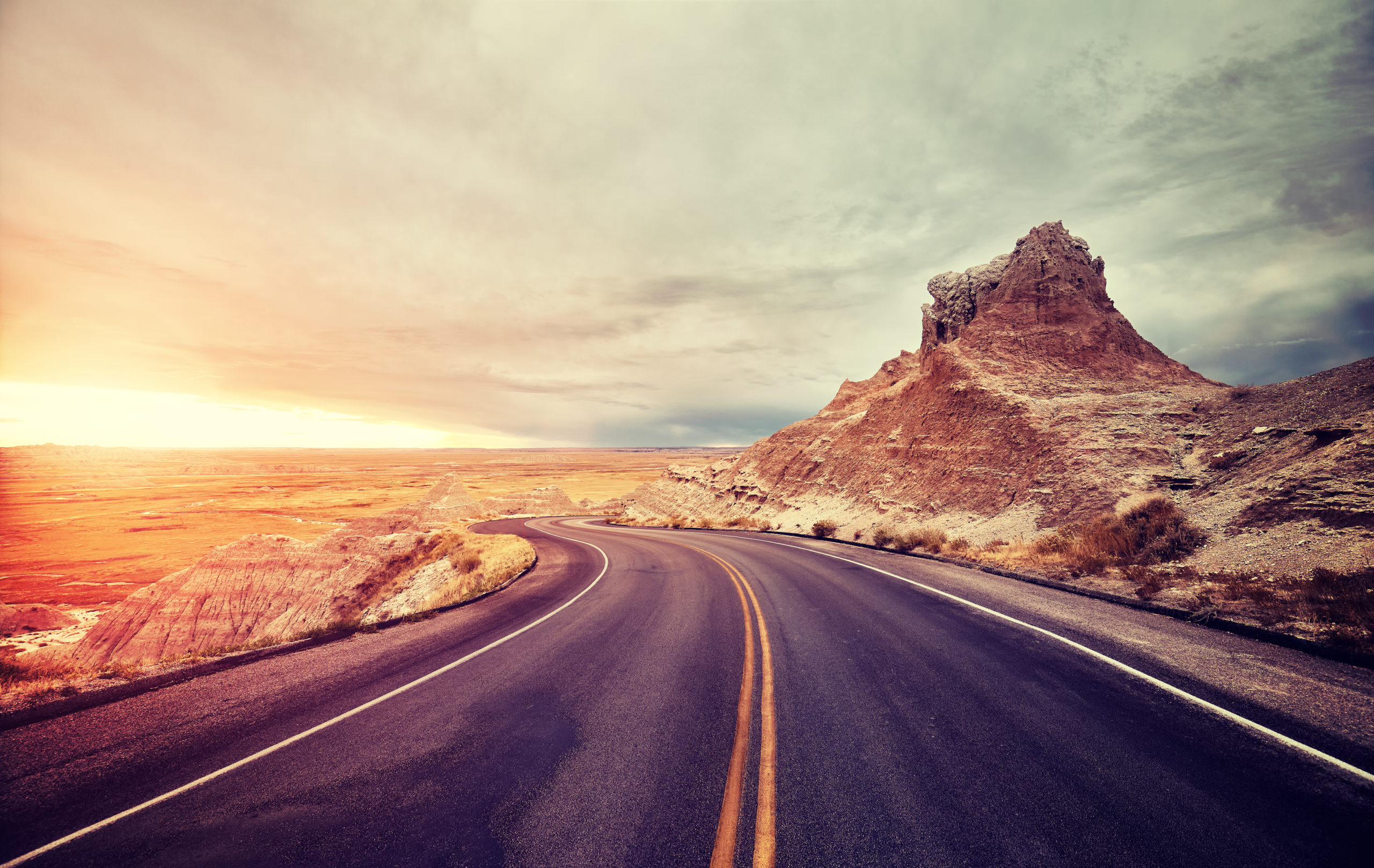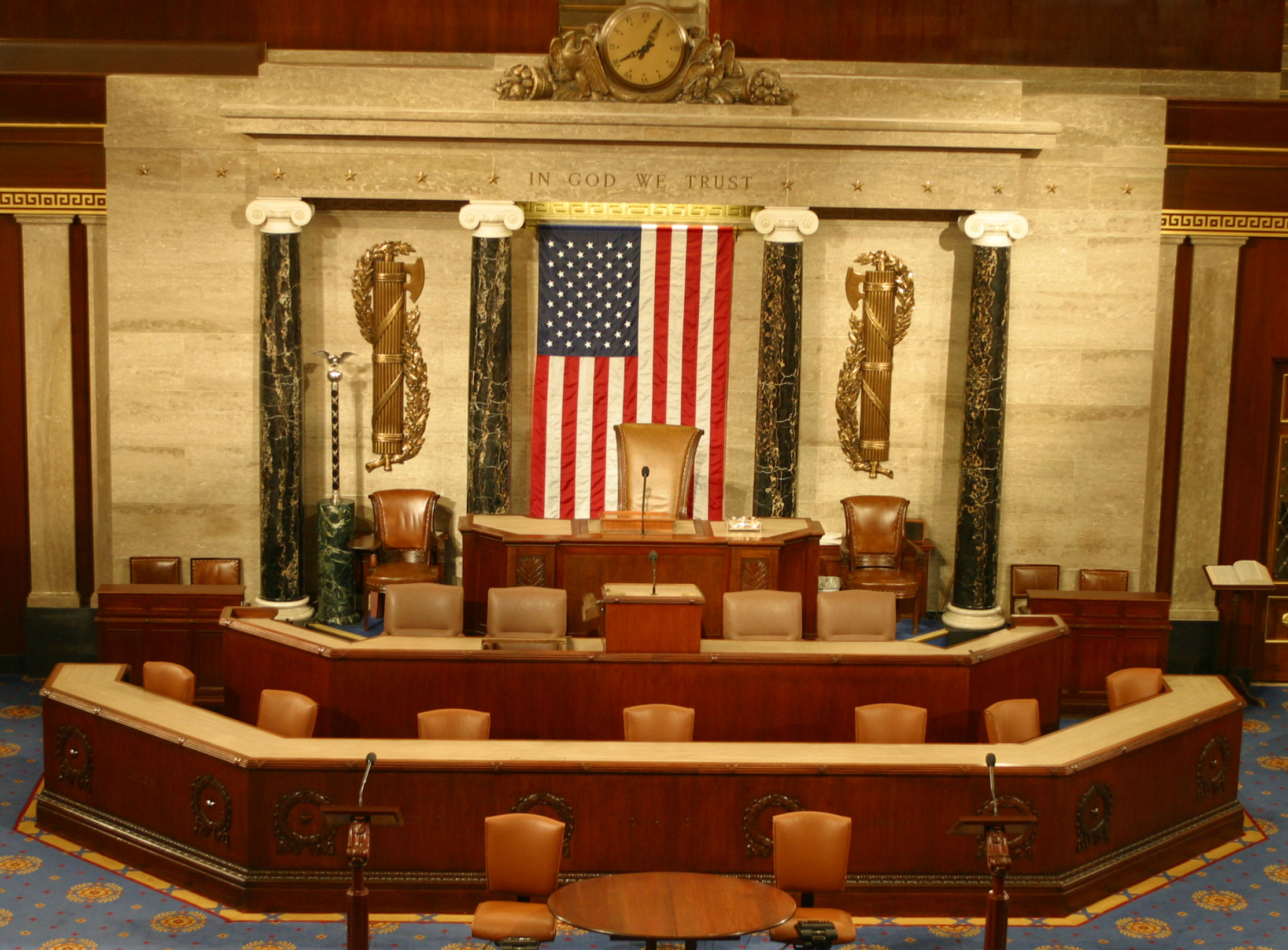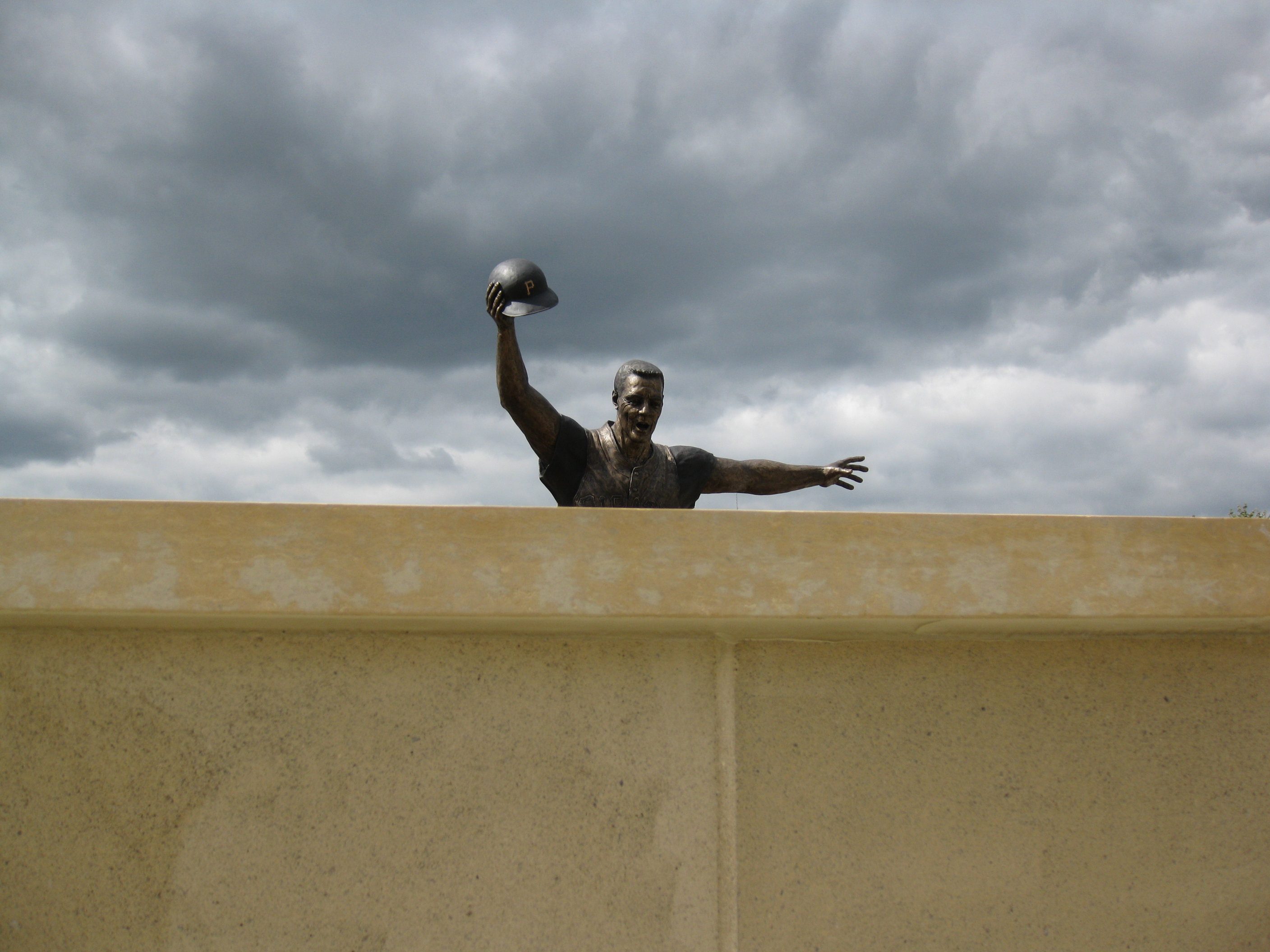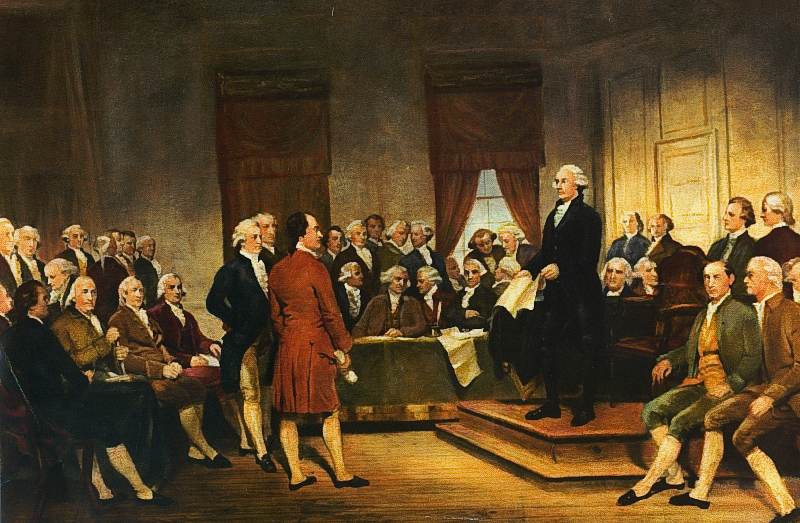On the Road Again

There is a reason why we love to drive.
It’s when you see the 80-mph speed limit sign on I-90 heading west outside of Sioux Falls that you really start to feel the American freedom rushing in. Stretching into the shimmering distance before and around you on all sides is the unpeopled, rugged, vast, and unmistakably western expanse of South Dakota. Once you cross the great Missouri River that Lewis & Clark dragged themselves up back in 1805, you are heading steadily upward mile by mile to the “energy capital of the nation” in Gillette, Wyoming, at 4,500 feet above sea level (the mean elevation of Wyoming is about 6,700 feet). You’ll pass the Badlands, Black Hills, Mt. Rushmore, and Deadwood on your way, not to mention Sturgis, where the world-famous motorcycle rally takes place annually every August (the 82nd rally runs August 5-14 this year).
The automobile, highways, and driving as we know it have only been with us for a couple of lifetimes and may be American experiences your grandchildren can only see in old movies or read about in books—if they still have books. Our woke masters of the moment are moving with stern and righteous determination to outlaw them all or make them impossible. On their way, they have for the time being sucked the energy out of the energy capital of the nation so that we can all pay Russians and Saudis to fill our gas tanks at $6.00/gal. Most recently, as the Wall Street Journal noted, Biden Transportation Secretary Pete Buttigieg, in flagrant disregard of the Constitution, proposed a rule “requiring states to reduce CO2 emissions on highways—that is, banish gas-powered vehicles.”
There is a reason why we love to drive and the open road. It is natural and healthy for human beings to follow their own lights and live according to their own inclinations, just as it is unnatural and unhealthy for them to be led through the world like sheep by professedly benevolent climate scientists and public health officials.
Which reminds me of another memorable American Road Trip. . . . I was on my old motorcycle, named Rocinante, with my Faithful Traveling Companion and Navigatrix sitting behind me. We were roaming the soft dips and curves of the country roads of southeast Ohio.
I took a wrong turn and asked my FTC&N, “What was the name of that street again?”
“Road,” she said.
“What?”
“Not street. Road.”
I was fondly reminded once again that I was a city boy, my FTC&N was a small-town girl, and we were in the country.
Streets and roads are very different animals. For good reasons, Willie Nelson sang, “I just can’t wait to get on the road again.” He looked forward to goin’ places that he’d never been and seein’ things he may never see again. On the road is freedom and adventure, exploration, independence, and surprise. The boss isn’t looking over your shoulder; you’re not counting minutes or doing chores. The road stretches ahead out of sight under big skies into unpredictable discoveries; wide-open spaces spread on every side and beckon over every horizon. You are on your own and breathing easy, and if someone is sitting beside you breathing easy too, you are apt to break into song.
No one, to my knowledge, has ever written the lyric, “I just can’t wait to get on the street again.” If you’re on the street, it means you don’t have a house to live in, can’t pay the rent, and are probably out of a job. You’re down and out, even if you’re looking for something better on the Streets of Bakersfield. We know from Raymond Chandler that it is the fate and the duty of every honorable private eye that “Down these mean streets a man must go.” But there doesn’t seem to be a mean road. It’s not in the specifications.
It might be a hard road, even a long hard road; depending how hard, it might mean the end of the road. But even if, with Hank Williams, you’ve been down that road before, it’s life’s journey; you can’t have a journey on a street. Two roads diverged in a yellow wood. Two streets couldn’t have done it.
To make your way through the mean streets, you need street smarts; you might even become streetwise. But this quality wouldn’t endear you altogether to a girl’s father when he sees you hanging around outside crooning in the street where she lives. He may think you’ve been around the block a few too many times. There’s no telling how Tennessee Williams’s play, A Streetcar Named Desire would have turned out if it had been A Railroad Named Desire. They didn’t call railroads “railstreets” for a reason. They had bigger things in mind, like conquering deserts, prairies, and mountains.
To be fair, dancing in the road has not yet become popular, but there’s a long tradition of “dancing in the street.” According to reliable reports, the “hippest meet on South Street,” and on 42nd Street, you’ll often hear the blistering beat of dancing feet. But if dancing leads to romance as is natural, the street doesn’t seem to offer the full array of options. When your date looks quizzically at your mooning eyes, you want to “pull on over to the side of the road” and show her what you mean. It just wouldn’t be the same to pull over to the side of the street.
Even a road to nowhere seems to have appealing possibilities. You might just be roaming free in the great outdoors. You can’t roam on a street. A street to nowhere is just a dead end. The open road has poetry in it. An open street is just one that isn’t closed for construction. When you go off-road, you are in the wild; exciting, uncharted territory. The rules of the road no longer apply. People don’t talk about going “off street.” If you go off street, you’re on a sidewalk, or in somebody’s front yard.
Country road is a phrase almost redundant, as is city street: generally speaking, you don’t find a road in the city and you don’t find a street in the country. But the songs about country roads hold spacious truths. Country roads are long and winding and, whether they are red dirt roads or roads with seven bridges, they are rich with the mysteries of life.
If you’re lucky, a country road can take you home; if not, it can take you down to the crossroads. The closest you can get to a crossroads on a street is an intersection with a red-light camera. If you’re going to get your kicks on Route 66, you know you’re going to be on the road, not on the street. No one ever thought of going on a Great American Street Trip. When you tell Jack to hit the road, you know he’s heading for the country. You can’t get out of town on a street.
So we’re not surprised that at a quarter to three, with no one around except you and me, the street wise Frank Sinatra, who had been around the block doing it his way many times, just wanted one for my baby and one more for the road.
The American Mind presents a range of perspectives. Views are writers’ own and do not necessarily represent those of The Claremont Institute.
The American Mind is a publication of the Claremont Institute, a non-profit 501(c)(3) organization, dedicated to restoring the principles of the American Founding to their rightful, preeminent authority in our national life. Interested in supporting our work? Gifts to the Claremont Institute are tax-deductible.
Root, root, root for the electors. If they don't win it's a shame.
Part I: Unfettered reason cannot conserve anything.






